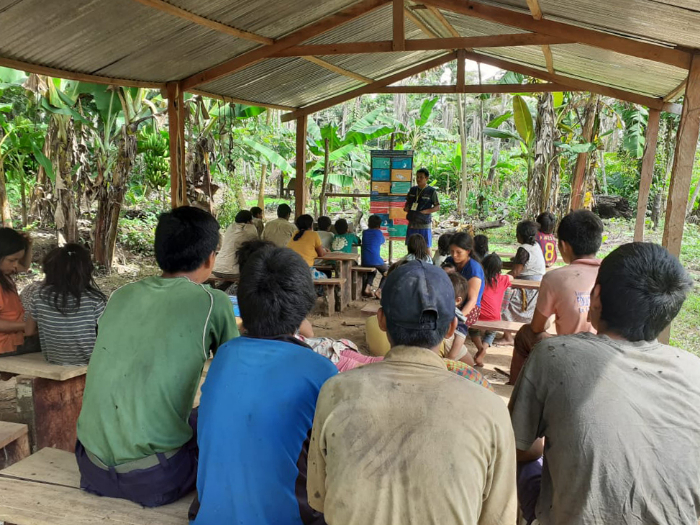A globally significant analysis task led by Chapman College Professor Hillard Kaplan has revealed new conclusions indicating that Indigenous villagers in the Bolivian Amazon have markedly small fees of dementia.
In the research, released in March in Alzheimer’s & Dementia: The Journal of the Alzheimer’s Affiliation, Tsimane and Moseten people 65 or older were found to have dementia prices of about 1%, when compared with 11% for Us citizens in the same age team.

These new study outcomes aid previous conclusions about healthier getting old involving the Tsimane and Moseten, who are between the last people on Earth even now residing a hunter-farmer-forager life-style. These before effects, collected as element of the Chapman-led Tsimane Health and Lifetime Background Task, clearly show that the Amazon villagers have the world’s most affordable described amounts of vascular growing old.
“Something about the pre-industrial subsistence way of life seems to defend older Tsimane and Moseten from dementia,” explained Margaret Gatz, guide creator of the Alzheimer’s review and a professor of psychology, gerontology and preventive medication at USC.
The global crew of Tsimane Venture researchers is led by Kaplan, a co-author of the review. Kaplan is a professor of health economics and anthropology at Chapman who has researched the Tsimane for two decades.
Researchers applied CT brain scans, cognitive and neurological assessments and culturally acceptable questionnaires — facilitated by a regional crew of properly trained translators and Bolivian medical professionals — to diagnose dementia and cognitive impairment amongst the Tsimane and Moseten.
“We’re in a race for answers to the developing prevalence of Alzheimer’s condition and similar dementias,” Kaplan claimed. “Looking at these varied populations augments and accelerates our knowledge of these health conditions and generates new insights.”
The examine identified only 5 circumstances of dementia amongst 435 Tsimane folks and just 1 case amid 169 Moseten aged 60 or older.
In the very same age teams, the investigation staff identified about 8% of Tsimane and 10% of Moseten with moderate cognitive impairment, which is commonly marked by early-phase memory reduction or other cognitive drop. Kaplan and his colleagues say these charges are additional comparable to delicate cognitive impairment in high-profits nations around the world like the U.S.
Scientists also learned that the examine contributors discovered to have dementia or mild cognitive impairment commonly experienced outstanding calcifications of their intracranial arteries. These study participants generally shown parkinsonian symptoms throughout neurological exams and cognitive deficits in attention and spatial recognition.
Even though calcifications were far more typical between the cognitively impaired, scientists also noticed these vascular calcifications in the CT scans of all those with out dementia or mild cognitive impairment. The scientists say that additional investigate is essential to have an understanding of the purpose of vascular components as nicely as infectious and inflammatory problems. Tsimane Venture analysis is ongoing, so supplemental data-accumulating is planned.
In his role as challenge direct, Kaplan will work with Tsimane and Moseten elders to be certain mutuality. As the COVID-19 pandemic encroached, investigate was suspended and a system was made to shield villagers from an infection.
As the job carries on, the workforce acquires substantial insights about how eating plan and lifestyle have an impact on wellbeing. If the industrialized world emulated the Tsimane and Moseten in diet regime and everyday activity, it would preserve millions of life and billions of bucks in health and fitness care prices, Kaplan suggests.
“We are our very own worst enemies,” he notes.





